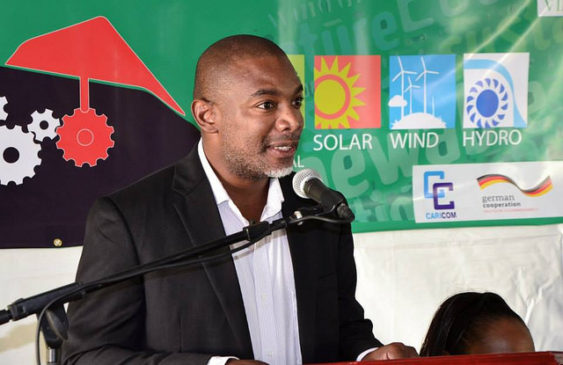
Although Guyana may not be in the hurricane belt, it certainly will have to deal with issues such as the rise in sea levels and flooding as the country builds its new energy future.
This is according to Caricom’s Energy Programme Manager, Dr Devon Gardner, who at a recent talk about Guyana’s Green State Development Strategy (GSDS) noted that while there are multiple potential renewable energy sources for the country, focus needs to be placed on those that can be “realistically developed.”
“…In a way that gives us the kind of energy system that makes us sufficiently robust to the potential external impacts of commodity prices, not just oil, and as well as make us a lot more resilient to the impacts of climate change. There must be understanding that within that context too, the opportunities for rural development, social advancement and a lot of the economic potentials including those that can be gained from the exports.
Not just of oil and gas potentially but also from renewable energy including renewable electricity from sources such as hydro…maybe other sources, perhaps including biomass produced fuels such as maybe biodiesel etc.”
According to Dr Gardner, Guyana has an electrical system that is “not the most modern” and a system that includes generation that is largely dependent under the current state of fossil sources, most of which are oil-based sources.
“We have a configuration for delivering the energy from the generation points to the demand centres that is not optimised and that is something that results in a system that is not sufficiently reliable and secure”, he added.
Further, the official said that on the transport side, the Caribbean has similar issues in the sense that there is even more dependence on oil-based sources for fuel.
“We have a marketing and distributing system that is very conventional [and] depends on, of course, fuel coming in, being bunkered in the course, transported to the distribution stations, people then come fill up and then use motor vehicles with internal combustion engines and to date we have not been able to secure data on the average age of the vehicles despite much efforts to do so.”
Gardner posited that from a first glance of the roadways in Guyana, it is obvious that the transport sector is not one of the more efficient end users of energy within Guyana.
“So, understanding that configuration means that in any planning there has to be short term goals that seeks to rectify some of the maladies in the existing system.
Even as we try to build the optimisations that are necessary for the kind of flexible, adaptable, diversified systems. Systems that would make us have lower energy costs, maybe energy costs that are not necessarily lower, but are more resilient to external price shorts from the commodities markets and much greater reliability in our systems.”
The Caricom official reminded that renewable energy is “not an end in itself” but more of a means in Guyanese obtaining the kind of diversified economic and social systems with the relevant stewardships and necessary environment for a country that is pursuing a GSDS. (Kristen Macklingam)



